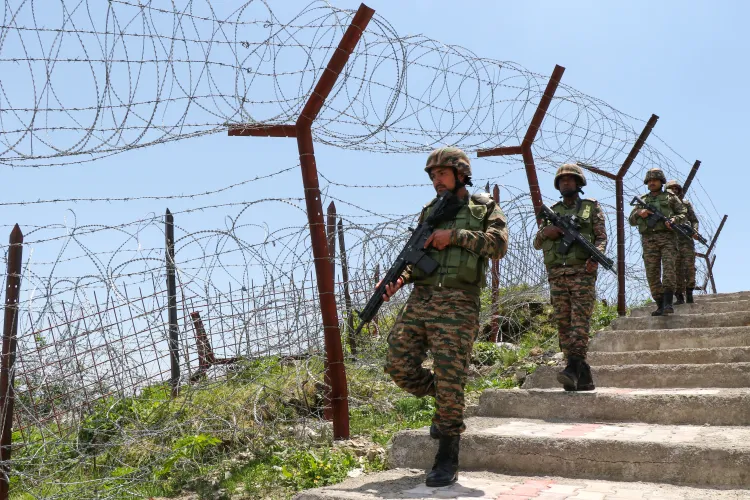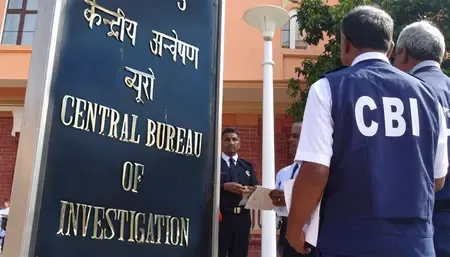Did the Army Successfully Thwart an Infiltration Bid on the LoC in Poonch?

Synopsis
Key Takeaways
- Two terrorists were killed during an infiltration attempt along the LoC in Poonch.
- Operation Shivshakti was a successful anti-infiltration operation.
- Three weapons were recovered from the deceased terrorists.
- Intelligence collaboration played a crucial role in the operation's success.
- This operation follows the recent killing of terrorists involved in the Pahalgam attack.
Jammu, July 30 (NationPress) On Wednesday, the Indian Army successfully prevented an infiltration attempt along the Line of Control (LoC) in Poonch district, Jammu and Kashmir, resulting in the elimination of two terrorists.
During Operation Shivshakti, vigilant troops from the #IndianArmy neutralized two intruders attempting to cross the LoC. Their prompt response and precise firepower halted the terrorists' malicious intentions, as reported by the Army’s Nagrota Headquartered White Knight Corps on X.
Additionally, three weapons were recovered from the deceased terrorists.
The operation was made possible through collaborative intelligence efforts from internal intelligence units and #JKP, leading to a successful engagement. Further operations are ongoing,” stated the White Knight Corps.
Earlier, reports indicated that two terrorists were sighted near the border fence along the LoC in Poonch district, prompting a gunfight in the vicinity.
This interception of terrorists by the Army follows the recent success of killing three terrorists involved in the April 22 Pahalgam terror attack, during 'Operation Mahadev' in Srinagar district.
In this operation, three notorious Pakistani terrorists, including Suleman Shah, the Lashkar-e-Taiba (LeT) commander, along with his associates Abu Hamza and Jibran Bhai, were eliminated by a coordinated effort from the Army, CRPF, and J&K Police at a strategic location in Dachigam National Park, near Mahadev Mountain Peak in Harwan area, Srinagar.
Union Home Minister Amit Shah informed Parliament on Tuesday that these terrorists were responsible for the Pahalgam attack, which resulted in the deaths of 26 civilians, including 25 tourists and a local.
He confirmed that intelligence tracking and eyewitness accounts linked these three terrorists to the Pahalgam incident, which had deeply angered the nation, prompting security forces to pursue justice.
In retaliation for the attack, Prime Minister Narendra Modi authorized the Armed Forces to conduct target-specific strikes against terror infrastructure in nine locations inside Pakistan, including Muridke near Lahore and Bahawalpur in Pakistan, as well as Kotli and Muzaffarabad in Pakistan-occupied Kashmir (PoK).
Pakistan responded with significant mortar shelling on civilian infrastructure in Poonch, Rajouri, Baramulla, Bandipora, and Kupwara districts of Jammu and Kashmir.
Following these tensions, the Indian Armed Forces successfully targeted and damaged 11 Pakistani defense bases. After Pakistan sought a ceasefire, a temporary understanding was reached; however, India remained firm on continuing Operation Sindoor.









